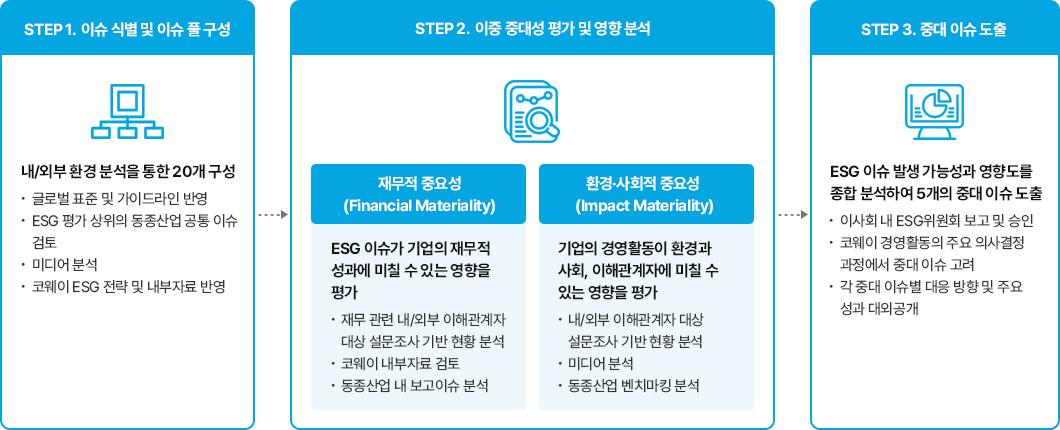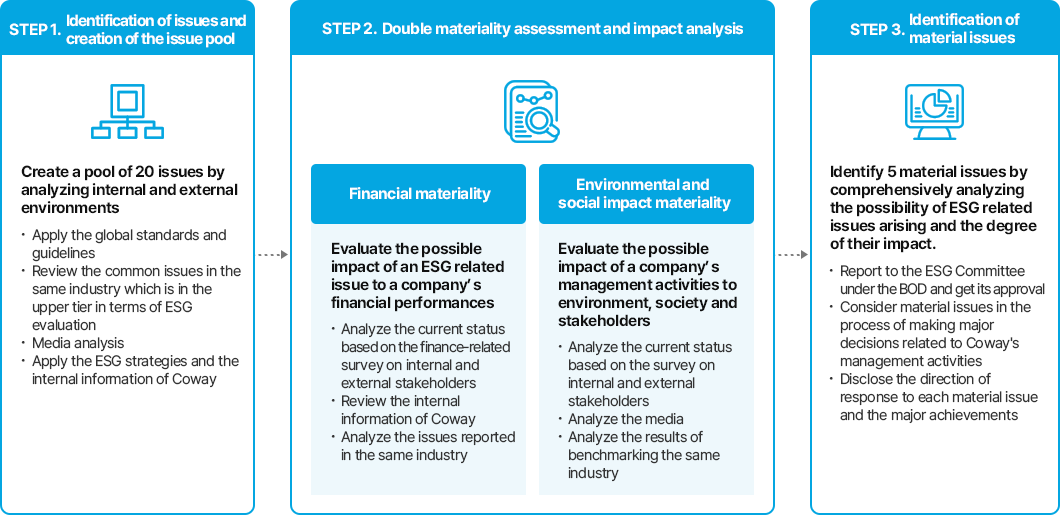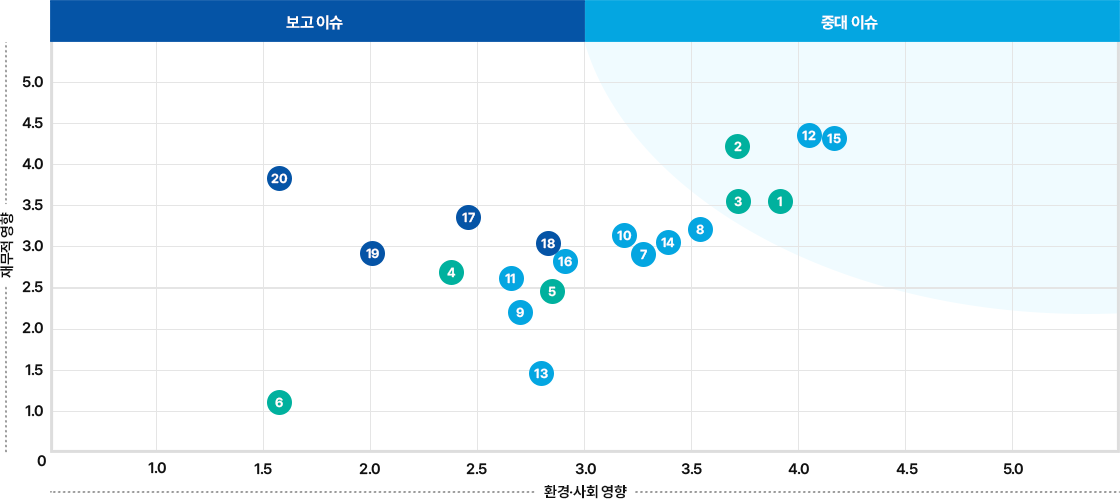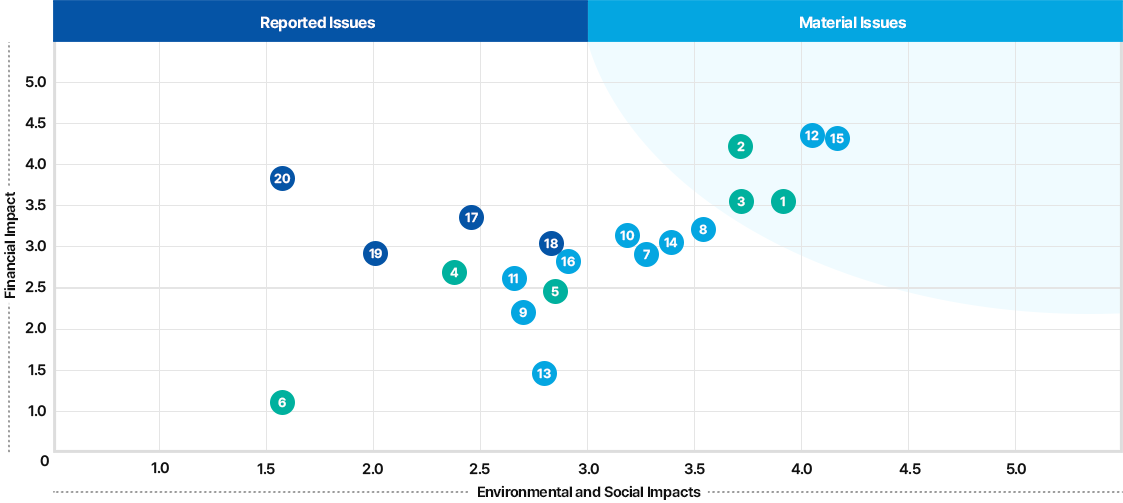To identify material issues that could affect Coway's sustainability, we conducted a double materiality assessment following the principles of GRI Standards 2021 to select reporting topics. This assessment method analyzes not only the environmental and social impacts of the company's business activities but also considers the financial impact of external environmental and social factors on the company. Coway gathered diverse perspectives through a stakeholder survey and identified material issues by integrating results from media sources, ESG evaluation indicators, and industry benchmarking analysis.
Double Materiality Analysis Overview
Double Materiality Assessment Process




Result of Double Materiality Assessment
Coway comprehensively analyzed the likelihood of sustainability issues occurring and their potential impacts, selecting 5 material issues out of a total of 20. These issues were finalized after being reported to and approved by the BOD. As a result, Coway identified 'product quality and safety' and 'eco-friendly products' as material issues for 2 consecutive years, recognizing them as major ESG issues highly relevant to its business operation. Coway intends to review material issues as key components of company-wide risk management and transparently disclose related ESC activities and their performance to stakeholders.


Environmental
- 1
Climate Change Response
- 2
Eco-friendly Products
- 3
Waste Management and Resource Circulation
- 4
Water Resources Management
- 5
Management of Hazardous Chemical Substances
- 6
Biodiversity
Social
- 7
Human Rights Management
- 8
Development and Management of Human Resources
- 9
Diversity and Inclusion
- 10
Supply Chain ESG Management
- 11
Strengthening the Expertise of Partners
- 12
Customer Satisfaction and Services
- 13
Social Contribution Activities
- 14
Safety and Health
- 15
Product Quality and Safety
- 16
Private Information and Information Security
Corporate Governance
- 17
Corporate Governance
- 18
Ethics and Compliance
- 19
Risk Management
- 20
Technological Innovation
Management and Reporting of Material Issues
Coway identified the company's status and risk factors related to the five material issues selected through the double materiality assessment. The ESG Council discussed directions, policies, performance, improvement plans, and other relevant aspects to address each material issue. Subsequently, the outcomes of these discussions were reported to the ESG Committee under the Board of Directors (BOD).

